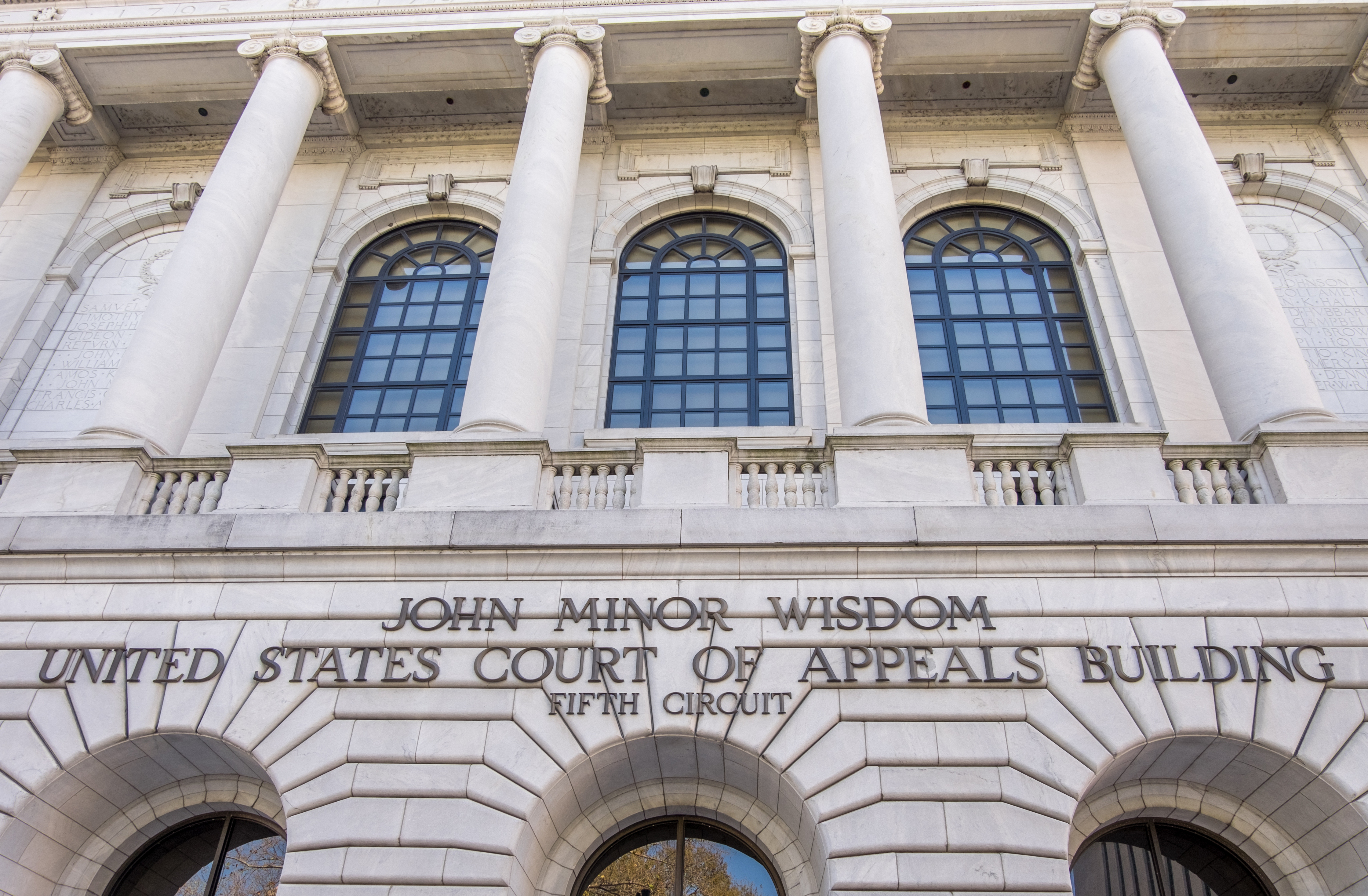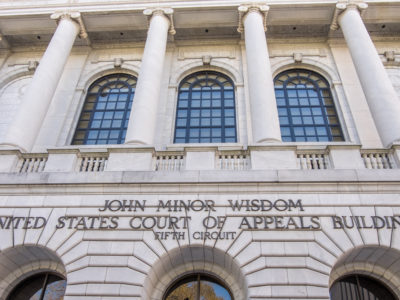
Rogers & Moore Victory: Fifth Circuit Court of Appeals Rules Trial Court Abused Discretion in Stanford Ponzi Scheme Case; $65M Insurance Settlement & Bar Order Vacated
Fifth Circuit Court of Appeals Vacates Bar Order Enforcing $65 Million Settlement Between the Receiver of Stanford Int’l Bank and Its Liability Insurers
Rogers & Moore, PLLC won an important appeal for its clients in the Fifth Circuit on June 17, 2019, in a case arising from the massive Ponzi scheme perpetrated by Allen Stanford and his inner circle of executives in which 18,000 investors lost over $5 billion. The appeal was brought by two groups of former Stanford employees and others against the court-appointed Receiver of the Stanford companies and their liability insurers, complaining of a Settlement between the Receiver and the Underwriters that stripped the Stanford employees of their rights as co-insureds under the policies.
In May of last year, Judge Godbey of the Northern District of Texas approved the Settlement, which had been hammered out in a protracted mediation process between the Receiver and Underwriters in which the Stanford employees were not allowed to participate. As they say, if you are not at the table, you are on the menu.
To enforce the Settlement, Judge Godbey issued a Bar Order that nullified the Stanford employees’ contractual and extra-contractual rights to seek benefits under the liability policies at issue. The Bar Order left the Stanford employees to fend for themselves in a lawsuit filed by the Receiver seeking to recover commissions, bonuses, and other compensation payments the employees had received for their work and productivity as Stanford personnel. The Receiver claims the compensation payments constituted fraudulent transfers in violation of the Texas Uniform Fraudulent Transfer Act, even though the employees knew nothing about the Ponzi scheme and had no fraudulent intent.
Adding insult to injury, at the insistence of the Receiver, the Settlement released all claims against Allen Stanford and his C-suite of top executives who had knowingly perpetrated the Ponzi scheme, but not the innocent Stanford employees. (An earlier version of the Settlement, which the Receiver reneged on, provided for releases of all co-insureds, including the Stanford employees. The Receiver refused to give up his efforts to claw back compensation from the former employees.)
Rogers & Moore, PLLC represented a group of former Stanford managers who had explicit rights as co-insureds under the liability insurance policies. Chief Judge Edith Jones for the panel ruled in favor of the former managers and employees, holding that the Settlement and Bar Order were not fair to the Appellants. She wrote:
The Receiver was enabled by the settlement and bar orders to place Appellants in a vise: preserving his ability to sue Appellants for clawbacks even as the agreement stripped Appellants’ access to any recompense from the Underwriters. These problems cast grave doubt on the fairness and equity of the settlement and bar orders reached without Appellants’ participation.
The opinion acknowledged that a trial court has extremely broad powers in a securities fraud case to protect the assets of the receivership estate and to pursue and distribute assets for the benefit of victims of the fraud, powers akin to a bankruptcy court. But the equity powers of a trial court, and a receiver appointed by the court, are not limitless. Extinguishing the property rights of innocent third parties over their objection, without providing any other mechanism to channel equity back to those parties for the value of their lost rights, is beyond the pale—even if the trial court finds that the taking is “fair and equitable.” Here, the Stanford Personnel were also victimized by the Stanford Ponzi scheme, and also had to be treated fairly and with due consideration for their rights.
The Fifth Circuit ruled that the trial court abused its discretion, vacated the court’s order approving the Settlement and Bar Order, and remanded the case to the trial court for further proceedings consistent with the opinion. The Receiver and Underwriters are expected to file motions for rehearing en banc, asking all the active appellate judges of the Court of Appeals to reconsider the panel’s opinion.
http://www.ca5.uscourts.gov/opinions/pub/17/17-10663-CV0.pdf

